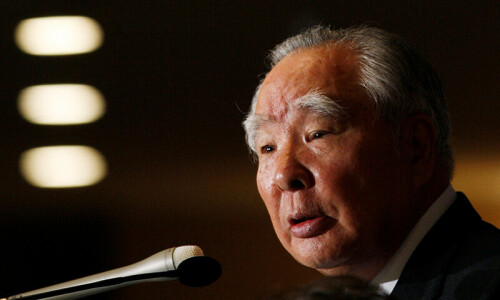The literacy rate among Pakhtoons living in Karachi is very low when compared to the other ethnic groups residing in the city. But things are improving after the recent influx of Pakhtoons from Khyber Pakhtunkhwa especially the Malakand Division and Fata as more and more families here are inclined towards proper schooling for their children.
It was during a recent visit to Karachi that I got the chance to spend some time in the areas where there is a majority of Pakhtoons. Newly-arrived Pakhtoon families in Keamari, Mauripur, Shireen Jinnah Colony, Frontier Colony, Musharraf Colony, Pathan Colony, Banaras Colony and Sohrab Goth are all willing to send their sons and daughters to schools. The literacy rate in these localities is expected to rise in the coming years.
Many of the Pakhtoon families living here also include those that made Karachi their permanent abode since the early 1960s. But being mostly illiterate and hailing from the low-paid working class, most of them did not give much attention to their children’s education although there were a few exceptions to this rule.
“It was way back in 1956 that my grandfather came to settle in Karachi from the Tribal Agency in Bajaur. He encouraged my father to go to school here which he did. Today he is a successful lawyer in Karachi encouraging us, his children, to study in the city’s best educational institutions. My sister is a student of medicine at the Aga Khan University whereas I am doing my master’s in computer systems from the NED University. Education after all is a way of survival. It should be pursued by everyone come what may,” stresses Shabbir Khan.
Today, there are Pakhtoon children living in Karachi who go to factories and other workplaces in the morning in order to support their families but they all attend second-shift schools in the afternoon.
Amina Khan is a sweet little 12-year-old residing in Karachi’s Banaras Colony. Her ailing father Rahim Gul is unable to afford his daughter’s education but she dreams of becoming a doctor someday.
“My father told me to give up my education as he could not pay my fees but I told him I would work as a domestic help at a nearby house and earn myself to pay my school fee. Bibi Gul, the lady I work for, pays me Rs3,000 a month and also drops me at my second-shift school after I am through with the day’s housework. I want to become a doctor to be able to serve and treat my ailing parents as well as other poor people,” says the child.
Talking to different people in the transport business in Mauripur and Musharraf Colony, it was learnt that a large number had already realised the importance of education, especially female education. Rasul Jan, a transporter by profession, informed that he has recently launched a campaign to create awareness among the Pakhtoon community to also send their daughters to school like their sons.
“The response I got from them was very encouraging. They realise that an educated woman can do wonders for the entire community. Also, in case of illness, no proud Pakhtoon would want his woman to be examined by a male doctor. So they realise the shortage of Pakhtoon lady doctors,” he explains.
Jan, thanks to help from some affluent individuals, has raised funds to build a school for girls in Keamari where the poor students will be given books and stationery free of cost.
Adam Khan, a resident of Shireen Jinnah Colony, says that his daughter Gulalai, who studies in class 10, is a great help in solving many of his domestic problems such as submission of utility bills and drawing cheques from the bank.
Farhat Jabeen and Aishma Khan, both dwellers of Gulshani-i-Iqbal, are first year students at a local college in Karachi. They say: “It is not that we don’t help our parents or we don’t care about our Pakhtoon traditions. We can carry out all our household chores without any difficulty. Our parents, too, don’t accompany us to and from college as they trust us completely and know we feel confident enough to move about in the city on our own.”
Qasim Jan, president of the Karachi chapter of the Pakhtoon Thinkers Forum (PTF), says that his organisation arranges various functions and seminars to keep alive the Pakhtoon culture and educate parents about sending their children to school.
“The situation has become much better now. The Pakhtoons living in Karachi for decades are settling down well as they make their economic and social contribution to this metropolis. The number of school-going children including girls is also increasing with the passage of time. All we ask of our Pakhtoon brothers is to also keep a grip on their own language and culture while making education their top priority.”
He points out that the Pakhtoon students are also active participants in the extra curricular activities offered by their respective educational institutions and feel free to choose different careers in their respective disciplines.
He, however, regrets that the number of schools is less than the required ratio in the areas populated by the Pakhtoons. Qasim Jan hopes that if the literacy rate can be raised among the different ethnic groups it will help promote peace, harmony and tolerance among the people of this great metropolitan city of Pakistan.
The writer is a senior teacher of English at a public school and college in Peshawar.















































Dear visitor, the comments section is undergoing an overhaul and will return soon.